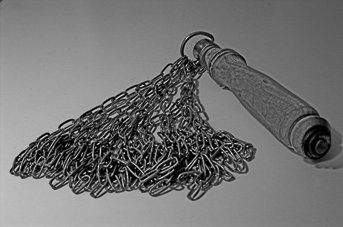Arlington's Casualty of Religious Hate
The irony of an American diplomat who thought religion played but a small part in tensions between peoples.
 In 1922, the American diplomat Major Robert Whitney Imbrie spent four months traveling through Anatolia, generally alone, often on horseback, twice crossing Asia Minor "from the Black Sea to the Mediterranean." He was sent by the American high commissioner, in effect the ambassador to Turkey, Rear Admiral Mark Bristol, to report on conditions in "the interior."
In 1922, the American diplomat Major Robert Whitney Imbrie spent four months traveling through Anatolia, generally alone, often on horseback, twice crossing Asia Minor "from the Black Sea to the Mediterranean." He was sent by the American high commissioner, in effect the ambassador to Turkey, Rear Admiral Mark Bristol, to report on conditions in "the interior."
Returning to Constantinople, he reported that he had "seen no oppression of Christian minorities, no deportations, no massacres, no outrages, no destruction or confiscation of property." Of course, he conceded, such things had certainly occurred during the preceding years. He himself had seen groups of Christian refugees, "notably in Sivas and Harpoot . . . in destitute conditions as a result of these deportations."
But, at the same time, he had seen "Christian [Armenian and Greek] minorities living, conducting business and worshipping wholly unmolested." Yes, he had noticed ill-feeling between the Muslim Turks and the Christians but, he opined, the "differences [between the communities] are not based upon religion. The Armenian and Greek does not hate the Turk because the latter is a Mohammedan. The Turk does not despise the Armenian and Greek because they are Christians. The reasons are political, revolutionary and economic. . . . Personally I have found the Mohammedan no more tolerant than the Christians. . . . Religion . . . [is] only a minor contributory factor in the existing differences among the peoples of Asia Minor." Indeed, he noted, there had recently been a "falling off on the part of the Mohammedan from his former strict adherence to his religion."
A few months later, the forty-year-old Imbrie was posted to Tehran, where he served as the U.S. vice-consul.
On July 18, 1924, Imbrie and a companion went to visit and photograph the "sacred" Sakheh Khaneh well where a native of that city "was rumored to have lost his sight . . . immediately after having uttered the name of Abbas Effendi, the late spiritual leader of the Bahais," reported The New York Times on July 24. "A few days ago the well was said to have been poisoned and Bahais were reported to have done it."
Observers warned Imbrie and his companion, one Seymour, to move off. They got back into their carriage and drove off but someone in the crowd shouted: "That is a Bahai! He has poisoned the water of our Sakheh Khaneh and killed Musselmen women and children." The Times reported: “The two Americans were dragged out and attacked by the mob with sticks and stones." Imbrie was rendered unconscious by a blow to the skull, possibly by a saber wielded by a Persian soldier. Policemen at the site apparently did nothing to protect the Americans but, eventually, they took him to the Police Headquarters Hospital. Still the mob gave chase and "forced its way into the operating room" and murdered him on the operating table. "He received more than forty wounds.”
Imbrie was buried "with full military honors" in Arlington National Cemetery. The Times article about the affair was titled "Imbrie Murder Laid to Religious Hate.”
